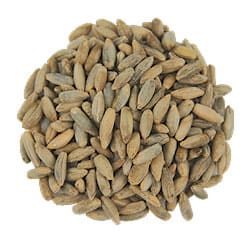
It all started with a lack of food. That lack prompted Yaakov to send his children down to Egypt to bring supplies home.
This resulted in a chain of events in which Joseph discovered his brothers and hiding a goblet in a sack of wheat.
Grains are a major part of our diet and are used in many forms of cookery, the most common of course is Bread.
Below you will find some important halachot (laws) about bread.
Have a Great Shabbat,
Chef Yochanan Lambiase, Founder of The Jerusalem Culinary Institute
- The Flour: Challah is separated when the dough is made of one or more of the following five grains: wheat, rye, barley, oat or spelt.
- The Liquid: In order to be able to recite the blessing, the majority of the liquid content of the dough must be water. If the majority of the liquid content is comprised of liquids other than water (e.g., oil, eggs, honey, fruit juice, etc.), challah should be separated, but without reciting the blessing. However, at least one drop of water should be added to the liquid.
- The Dough: Challah is not separated from a sweet cookie or cake batter that is loose (as opposed to a heavy batter/dough, like that of a babka).
- The Quantity: In order to separate challah and recite the blessing, the dough should contain at least 59 ounces (3 lbs. 11 oz., or 1 and 2/3 kilograms) of flour. If the amount of flour is between 43 and 59 ounces (1.230 to 1.666 kilograms), challah should be separated without a blessing. Do not separate challah if the dough contains less than 43 ounces of flour.
The words of this author reflect his/her own opinions and do not necessarily represent the official position of the Orthodox Union.

